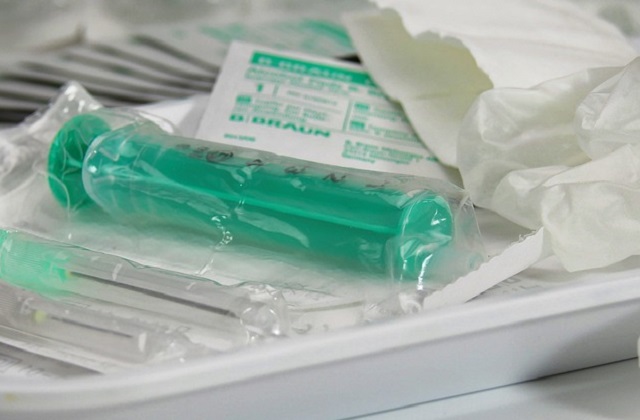Brain Foods And Nutrients For Your Child
Every parent will want the best nutrients and a wholesome diet for their children. With the rise of foods, milk formulas and supplements claiming to boost the brain development of children, parents are increasingly paying more attention to natural foods and supplements which can boost their child's brain function, learning and memory.
This article provides parents with the top essential nutrients for children's brain development and their food sources.
The list of nutrients below is important for the brain development of your child.
Brain nutrients and their food sources:
1. AA (Arachidonic acid)
This acid is important in the early development of the brain of children. One study in the USA found that infants given sufficient AA have demonstrated significant improvements in intelligence such as improvement in reading and spelling skills.
Furthermore, AA also plays an important role in the visual development of the children. Chicken and duck are rich in AA. A 1-cup serving of a roasted chicken contains 0.154 grams of AA and duck meat contains the highest level of AA among lean meats.
Fish is also rich in AA, which is an omega-6 fatty acid. A 3-ounce serving of Atlantic or Pacific halibut contains 0.002 gram, while salmon contains 0.291 grams with the same amount.
2. DHA (Docosahexaenoic acid)
Docosahexaenoic acid is the most abundant component of the brain and retina. For babies, DHA plays an important role in the growth and development of the central nervous system as well as the visual functions. This is because DHA is the predominant structural fatty acid in the central nervous system.
Salmon is a top brain food for your child as it is rich in Omega-3 fatty acids, specifically DHA. When preparing salmon for your child, it is important to note that baking, broiling and steaming causes minimal loss while deep-frying may destroy the Omega-3 significantly.
Other rich sources of DHA include cod liver oil, mackerel, oysters, sardines, anchovies, fish eggs or roe and some sea algae.
Compared to the rest which contains omega-3 fats EPA and DHA, nuts and seeds such as flaxseeds, chia seeds and walnuts contain the omega-3 fat ALA, which is inferior to EPA and DHA. However, they are also very nutritious for your baby as they are packed with omega-3 fat ALA and other nutrients such as magnesium, vitamin E, phosphorous and fiber.
3. Folate
Folate is also known as folic acid. It can improve one's memory and slow down the effect of aging. A deficiency of folate may cause an increased risk of depression.
Folate helps the body produce healthy red blood cells, balances the central nervous system and supports the healthy and steady growth of your baby.
Some rich sources of folate for your baby include spinach, kale, asparagus, broccoli, black beans, sunflower seeds, soybeans, melon and bananas.
4. Choline
Choline is critical for the brain and intellectual development of the infant and children. Choline is a key component of cell membranes, thus choline accounts for a high percentage of brain mass. Choline also forms acetylcholine, which is a neurotransmitter that carries messages to and from nerves. It is involved in muscle control, circadian rhythm, memory and many other neuronal functions.
Important sources of choline include egg yolks, wheat germ, beef, beef liver, scallop, salmon, chicken, codfish, shrimp and broccoli. Among them, beef liver, wheat germ and egg contain the highest amount of choline.
5. Phospholipids
Phospholipids act as the building block of the biological cell membranes and participate in the transduction of biological signal across the membrane. They serve as barriers for your cells. For example, dipalmitoylphosphatidylcholine is the phospholipid responsible for helping your lungs expand during breathing. In addition, cephalin is a phospholipid in your brain's white matter, neural tissue, nerves and spinal cord. Another phospholipid is the Sphingomyelin, which is one of the substances the body needs to kill defective cells.
Sources of phospholipids include egg yolks, organ meats, fish, shellfish, wheat germ, peanuts, soy, milk, oilseeds and lightly cooked meats. Most fats, fat-containing foods and oils also contain phospholipids. However, make sure that your baby has taken sufficient choline as your baby's body can only synthesize phospholipid lecithin if he or she has enough choline.
6. Lutein
Lutein is concentrated in the retinas of our human eyes and it is an important component for the visual development of the infant and children by keeping our eyes safe from oxidative stress and high-energy content light such as blue light or ultraviolet radiation. It is so important to our eyes that some scientists call it the 'eye vitamin'.
Sources of lutein include foods like spinach, eggs, broccoli, corn and leafy greens like kale, turnip greens and romaine lettuce.
7. Taurine
Taurine is commonly found in infant formula milk. It is an amino acid that can be produced by our human body. It plays an important role in detoxification and the regulation of nerve-cell activity.
Taurine is an antioxidant that can reduce the chance of retinal lesion and visual deterioration. Researchers had found that taurine could improve cognitive learning of the infant and children. While adults are capable of synthesizing taurine from essential amino acids, newborns are unable to synthesize taurine directly and need to get it from their diet.
Fish, such as capelin, mackerel and salmon contain high levels of taurine. Animal meat is also a good source of taurine. These include beef, pork, beef liver, lamb and chicken liver. Initial postpartum breastmilk, known as colostrum, also contains high levels of taurine. The amount of taurine in breastmilk reduces gradually but by 30 days postpartum, there is still 40 percent of the initial peak.
Sea algae such as seaweed also contain taurine.
8. Zinc and Iron
Zinc and iron are essential for your child's brain development. Zinc forms an integral part of the structure that regulates communication between nerve channels. Iron aids in supplying oxygen to the brain and is also in the dopaminergic pathways.
One rich source of such minerals is lean meats such as beef and pork, soy products such as tofu and roasted soybeans, and beans, such as navy, black, kidney and white beans. According to the Linus Pauling Institute, shellfish, like scallops, are one of the top sources of zinc. They also provide heme iron.
Whole grains are also high in iron and zinc as they contain the bran, germ and endosperm components of the entire grain kernel. Examples of whole grain foods include barley, whole wheat bread and whole wheat spaghetti. Hence, switching up refined grains with whole grain foods can increase your child's iron and zinc intake.
It takes a village to raise a child !
Join our WhatsApp Groups or Facebook Group to interact with parents about infant care/child care in Singapore..









